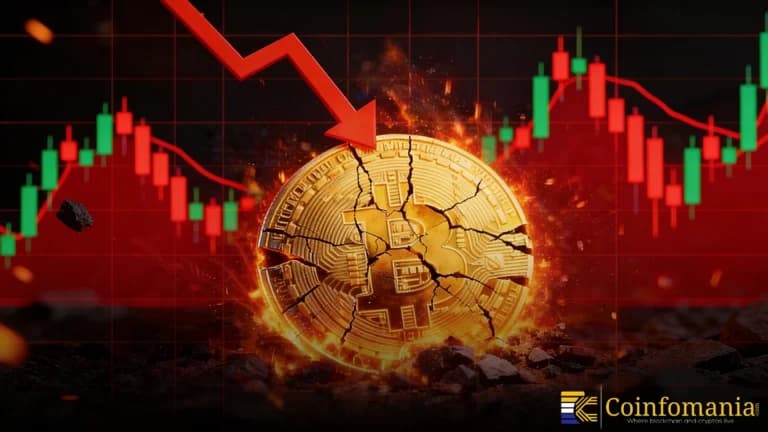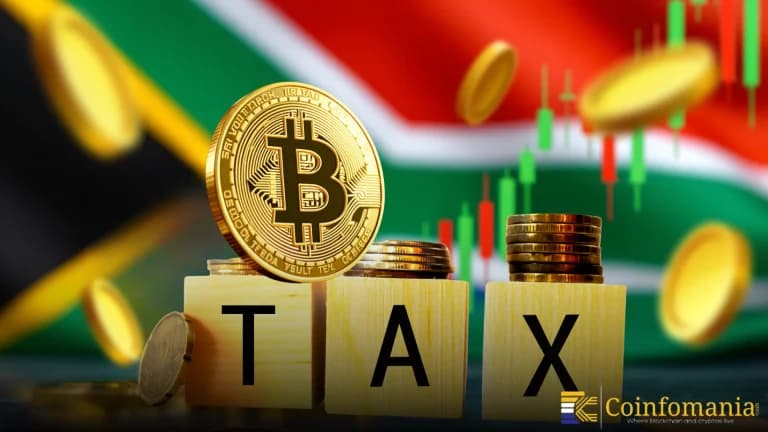Trump Administration Signals Renewed Interest in Addressing U.S.–China Tariffs
Let’s explore how Donald Trump’s renewed US-China negotiations could reshape global trade and influence economic markets worldwide.

Amid ongoing trade frictions, the United States under President Donald Trump has quietly reopened channels with China. Chinese state media report that these informal talks seek to revive stalled negotiations and reassess the impact of tariffs. As the economy digitizes, this wave of US-China negotiations also touches growing interest in digital assets. Although Trump’s crypto policies have helped the market growth, his trade policies have had destructive effects. As such, the market is eagerly awaiting a de-escalation between the US and China. Such development and policy shifts could alter global investment flows and currency valuations.
What Is the Current Status of Trade Talks?
Reports indicate Trump’s team has reopened dialogue channels for U.S.-China negotiations, aiming to reassess Trump’s tariffs on Chinese goods. Such measures targeted China’s manufacturing strength and intellectual property dominance. Yet they triggered supply chain bottlenecks and higher inflation nationwide. This is because, previously, US markets were viewed as a hedge against such economic shocks. These talks could reshape global trade expectations and investor behavior, while their outcome remains uncertain.
President Trump told NewsNation that any deal must be both urgent and fair. He repeated this stance at a Cabinet meeting. He said these talks are vital for balanced trade relations. He also expressed willingness to speak directly with President Xi Jinping. Meanwhile, Treasury Secretary Scott Bessent urged China to make the first move. These statements underline the administration’s strategic posture on trade issues. They suggest US-China negotiations are in an early revival phase, as formal frameworks remain absent, but political signaling remains strong. The administration continues signaling readiness while awaiting concrete de-escalation actions.
Could Trade Negotiations Impact Crypto Market Sentiment?
Although China views the United States as eager to resume formal trade talks, Beijing plans to monitor whether Washington proposes meaningful measures. Recent U.S. economic slowdowns, like reduced consumer spending and rising imports, may drive this eagerness. Trump’s tenure faces heightened scrutiny because of these economic challenges. Chinese analysts contend that without clear policy shifts, engaging in formal talks lacks urgency. For now, China prefers to wait and see how the Trump administration responds to its pressures before joining talks. This stance shows that China remains cautious and does not have urgent commitments.
At present, no formal meeting between U.S. and Chinese officials is scheduled, yet both sides maintain diplomatic postures. China demands meaningful measures before resuming talks, matching the Trump team’s call for fairness in negotiations. Meanwhile, the crypto community monitors developments that could signal a positive shift in market sentiment. Any breakthrough might revive investor confidence and spark activity across blockchain sectors. Financial strategists and tech policymakers view these issues through a digital economics lens. Ultimately, U.S.-China negotiations are no longer isolated but crucial to global economic strategy.
Are Digital Currencies Becoming a Part of Trade Discussions?
Slowing economic signals are prompting policymakers to rethink trading tactics as conventional approaches now deliver diminishing returns in global markets. As such, proposals to funnel Trump tariffs revenue toward digital assets like Bitcoin have emerged. These speculative ideas, labeled as part of a broader Trump crypto strategy, divide expert opinions. Blending traditional trade tools with modern technology could stabilize and enhance economic performance. Discussions emphasize innovative solutions alongside traditional trade measures. Officials consider digital asset integration as a novel economic lever. This approach reflects a willingness to merge fiscal policy with digital innovation for future resilience.
Though still in early development, these digital currency initiatives hold significant potential to transform trade and finance landscapes. Donald Trump has shown growing interest in including blockchain strategies within his policy experimentation. Redirecting tariffs to support these investments could signal a further governmental movement towards crypto adoption. This Trump crypto angle interweaves trade policy with the emerging decentralized finance sector, underscoring evolving administrative priorities. If implemented, such measures could redefine international economic negotiations and highlight blockchain’s growing role in governance. Policymakers may prioritize decentralized asset frameworks alongside traditional fiscal tools.
How Is the USA Dealing with Trade Pressures?
Global economic volatility prompts nations to pursue novel strategies for stability. The U.S. faces pressure to revise its trade framework and adopt edge-case policies. Donald Trump returns to policy debates with familiar strategies and new ideas. Initiatives like Trump tariffs address trade imbalances through targeted import levies. Discussions of Trump crypto measures consider digital assets as potential economic stabilizers. These moves signify a push to recalibrate the U.S. stance in global finance. Ultimately, outcomes depend on evolving economic trends and political alignment between Washington and Beijing.
Follow us on Google News
Get the latest crypto insights and updates.


